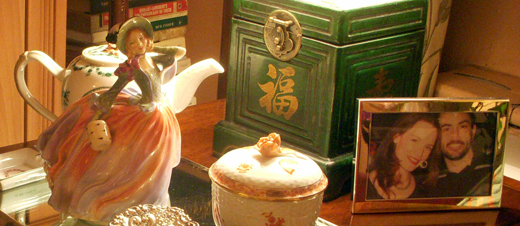Daily Office: Thursday

¶ Matins: Kenneth Davis writes about the first Thanksgiving to be given on land that would one day be part of the United States — by Huguenots in Florida. Their base, Fort Caroline (named after Charles IX), did not last very long; nor did they: the Spanish eradicated everything in 1565.
Mr Davis’s litany of religious persecutions in America exhorts us to regard Thanksgiving not as the commemoration of a hallowed past but as a celebration of how far we have come from our dark origins — and a reminder of how far we have yet to go. (NYT)
¶ Lauds: Charis Wilson, Edward Weston’s most notable muse (and his only “art wife”), died last Friday in Santa Cruz, aged 95. (Los Angeles Times; via Arts Journal)
As it happens, we’ve been reading about Charis Wilson in Francine Prose’s The Lives of the Muses. Great reading!
¶ Prime: We’re not terribly interested in the recent privatization of Chicago’s parking meters — or, rather, we weren’t until Felix Salmon decided to look into the matter. His conclusion: the city didn’t do too badly, and the contractors are idiots. The detail worth noting is that what Chicago’s alderman wanted, of course, was to raise parking meter prices without being accountable.
¶ Tierce: The Aesthete unearths the strange figure of George Sebastian, an adventurer who married American money and used it to builid Dar Sebastian, still a breathtaking edifice in Hammamet, Tunisia. (An Aesthete’s Lament)
¶ Sext: We love a good prank as much as anybody — probably more, as long as we’re not the victim — and so we’re rejoicing at the news that The Awl now has a whole department devoted to reviewing “pranks and their aftermaths.” Okay, they have Juli Weiner, who we hope is still enrolled in a good college.
¶ Nones: William Finnegan’s New Yorker excellent report on the situation in Honduras is not, sadly, online, although an abstract is available. For regular readers who have been following the matter here, there is little substantially new in the piece, and in fact we were gratified to read that coup leader Roberto Michelletti, in television appearances, “tends to glower, and speak from the side of his mouth, like Dick Cheney.” However, we hadn’t encountered anything like Mr Finnegan’s thumbnail of the constitution that ousted president “Mel” Zelaya wants to replace.
¶ Vespers: We’ve read Lauren Elkin’s review of Jeremy Davies’s Rose Alley several times now, and while we’re not certain that we want to read the novel, we’re intrigued by Ms Elkin’s account of it. (The Second Pass)
¶ Compline: Maria Popova (of Brain Pickings) takes “a look at what the Intenet is doing for learning, curiosity, and creativity outside the classroom.” There’s a lot about TED, which appears to be better understood in Europe than it is here. (Good)
To see how traditional education appears on the Internet, have a look at the Syllabus of Dr E L Skip Knox’s fully online course, sponsored by Boise State University, in HIST101 — The History of Western Civilization. (via MetaFilter)
